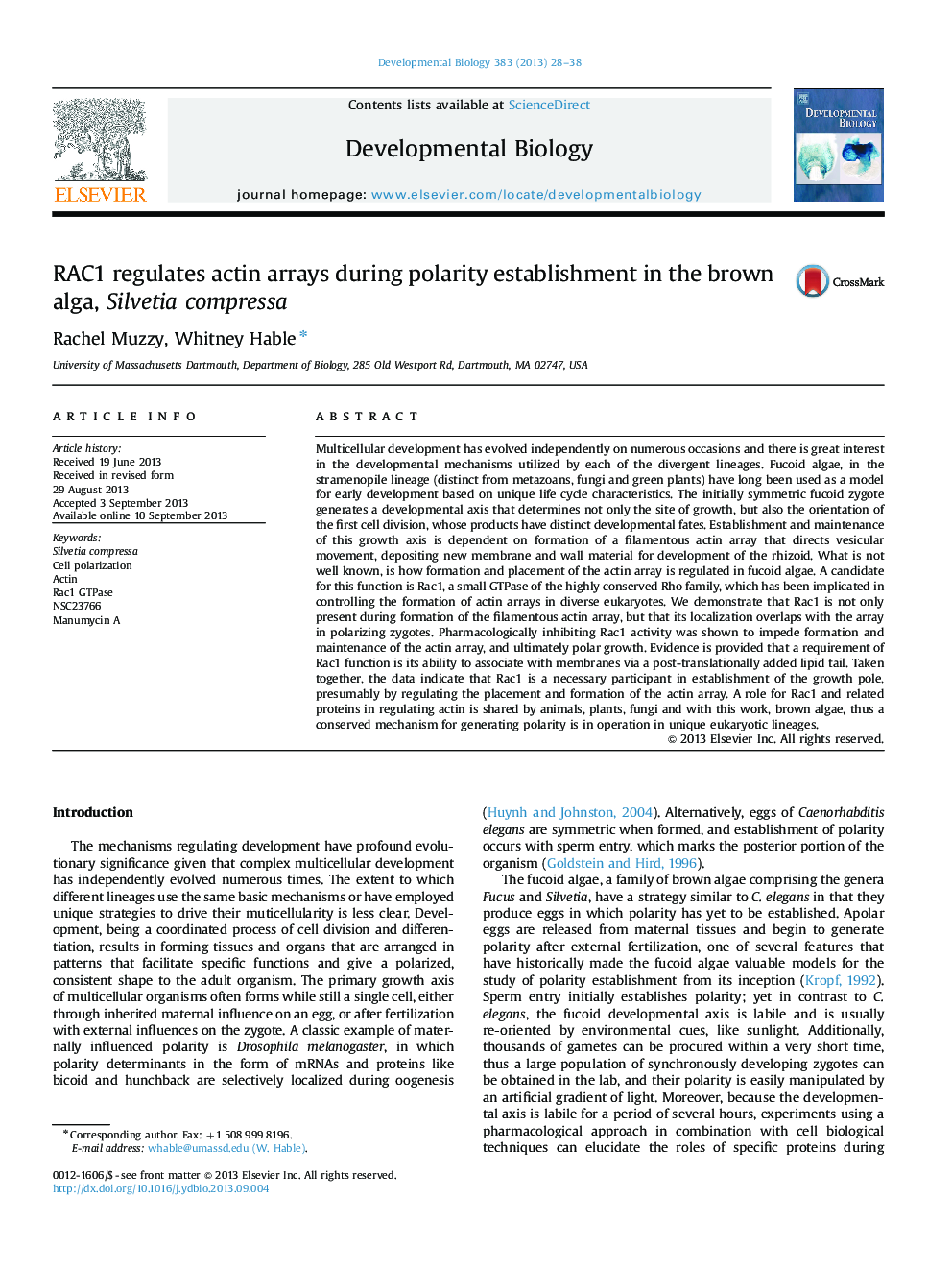| Article ID | Journal | Published Year | Pages | File Type |
|---|---|---|---|---|
| 10932021 | Developmental Biology | 2013 | 11 Pages |
Abstract
Multicellular development has evolved independently on numerous occasions and there is great interest in the developmental mechanisms utilized by each of the divergent lineages. Fucoid algae, in the stramenopile lineage (distinct from metazoans, fungi and green plants) have long been used as a model for early development based on unique life cycle characteristics. The initially symmetric fucoid zygote generates a developmental axis that determines not only the site of growth, but also the orientation of the first cell division, whose products have distinct developmental fates. Establishment and maintenance of this growth axis is dependent on formation of a filamentous actin array that directs vesicular movement, depositing new membrane and wall material for development of the rhizoid. What is not well known, is how formation and placement of the actin array is regulated in fucoid algae. A candidate for this function is Rac1, a small GTPase of the highly conserved Rho family, which has been implicated in controlling the formation of actin arrays in diverse eukaryotes. We demonstrate that Rac1 is not only present during formation of the filamentous actin array, but that its localization overlaps with the array in polarizing zygotes. Pharmacologically inhibiting Rac1 activity was shown to impede formation and maintenance of the actin array, and ultimately polar growth. Evidence is provided that a requirement of Rac1 function is its ability to associate with membranes via a post-translationally added lipid tail. Taken together, the data indicate that Rac1 is a necessary participant in establishment of the growth pole, presumably by regulating the placement and formation of the actin array. A role for Rac1 and related proteins in regulating actin is shared by animals, plants, fungi and with this work, brown algae, thus a conserved mechanism for generating polarity is in operation in unique eukaryotic lineages.
Related Topics
Life Sciences
Biochemistry, Genetics and Molecular Biology
Cell Biology
Authors
Rachel Muzzy, Whitney Hable,
